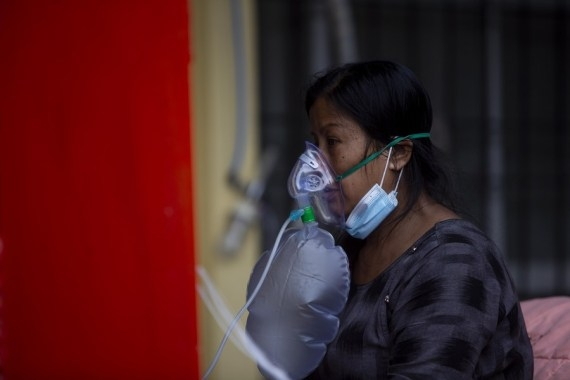

One of Covid's severe symptoms is the inability to breathe on one's own. The virus causes mucus and other fluids to block patients' lungs, making it difficult for air to get through.
<p>
<strong>Inserting breathing tubes early may reduce Covid-19 patients&#39; ICU stay by a week, claims a study.</strong></p>
<p>
The study, led by researchers at McMaster University and the University of Toronto in Canada, looked at tracheostomies, which are a procedure that helps patients breathe through tubes, the Daily Mail reported.</p>
<p>
The findings, published in the peer-reviewed medical journal JAMA Otolaryngology – Head &amp; Neck Surgery, showed that tracheostomy shortened Covid patients&#39; stay in the ICU when it was done within two weeks of their arrival.</p>
<p>
In addition, the procedure didn&#39;t pose a significant risk to healthcare workers if they use personal protective equipment, the report said.</p>
<p>
One of Covid&#39;s severe symptoms is the inability to breathe on one&#39;s own. The virus causes mucus and other fluids to block patients&#39; lungs, making it difficult for air to get through.</p>
<p>
In the usual scenario, doctors insert a breathing tube into a patient — in a procedure called tracheostomy — on patients after spending two weeks on a ventilator. The procedure involves cutting a hole into a patient&#39;s neck — connected to their windpipe — and hooking that tube up to the ventilator. It helps air flow more easily into the lungs.</p>
<p>
But, the medical community has different opinions on performing the procedure — and its timing.</p>
<p>
To examine what benefits the procedure may have for patients, the team conducted a systematic review and meta-analysis of 69 studies.</p>
<p>
The results conflict with past guidance to physicians, which recommends waiting 14 days to give a patient breathing tubes so that the doctor can ensure they really do need breathing help for an extended period of time.</p>
<p>
Another concern, especially when it&#39;s done earlier is that it can endanger the healthcare workers tending to ICU patients.</p>
<p>
While cutting into a patient&#39;s neck or moving a ventilator during this procedure, coronavirus particles will escape from the patient. This is a riskier process when it&#39;s done soon after a patient has arrived at the hospital, since Covid patients tend to be at a higher risk of infecting others within the first two weeks of their disease.</p>
<p>
The National Institute of Health recommends extreme caution during tracheostomies for this reason.</p>
<p>
The researchers found, however, that only five per cent of studies in their summary analysis reported healthcare workers testing positive after a breathing tube procedure, the report said.</p>
The Indian Chamber of Commerce (ICC) on Thursday hosted the 14th India Minerals and Metals…
Prime Minister Narendra Modi departed from Ghana's capital city of Accra after concluding the first…
India and Australia have undertaken the first science and technology project arrangement to improve the…
The eighth edition of India-France Joint Military Exercise Shakti-VIII concluded on Thursday at Camp Larzac,…
As Prime Minister Narendra Modi has been conferred the national honour of Ghana, Officer of…
External Affairs Minister S Jaishankar held a meeting with FBI Director Kash Patel in Washington…